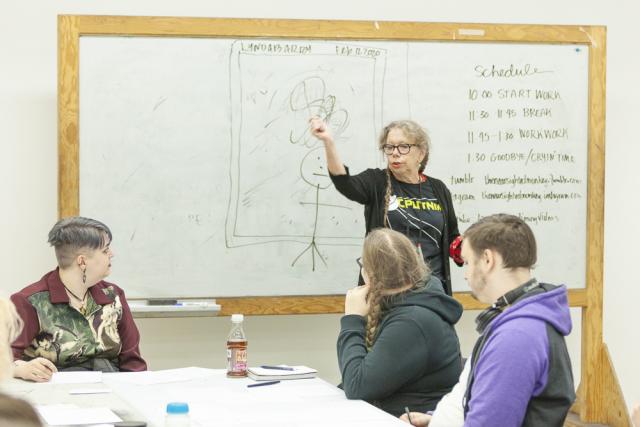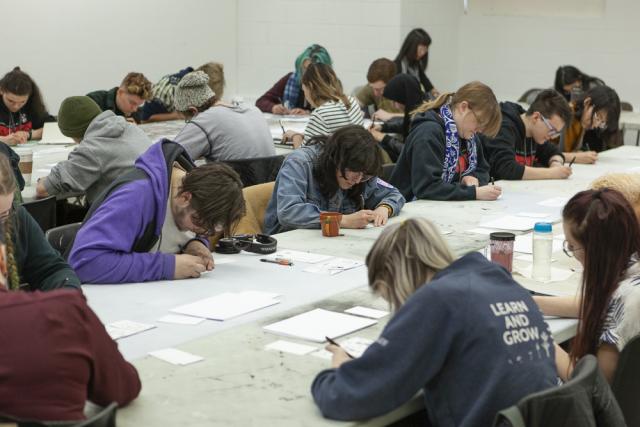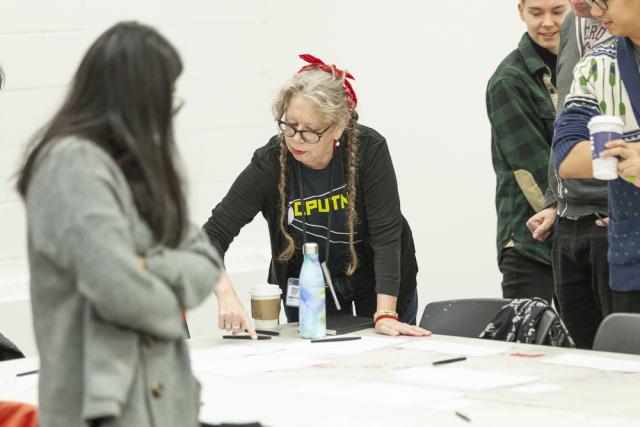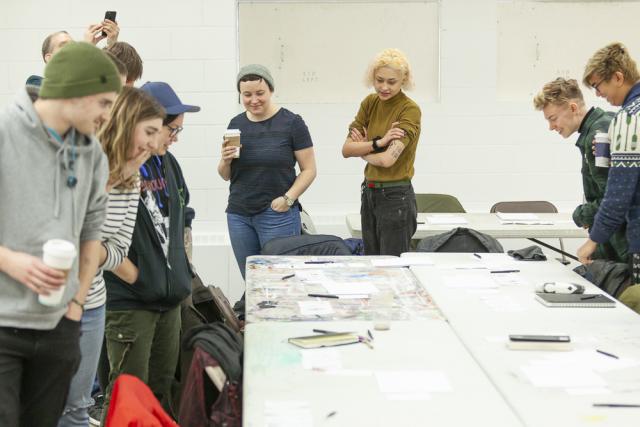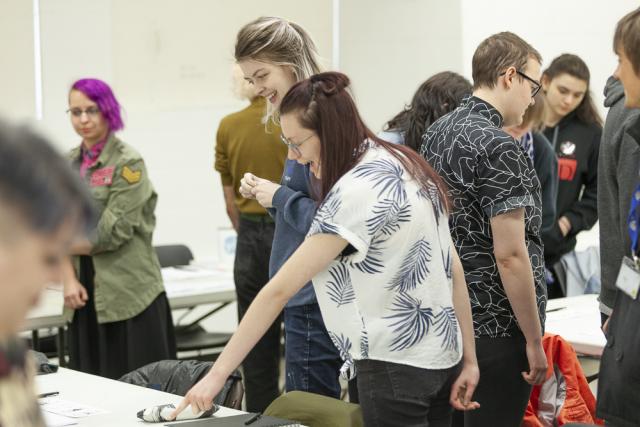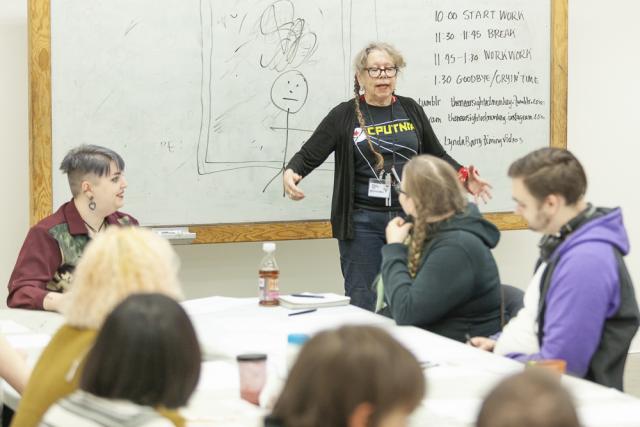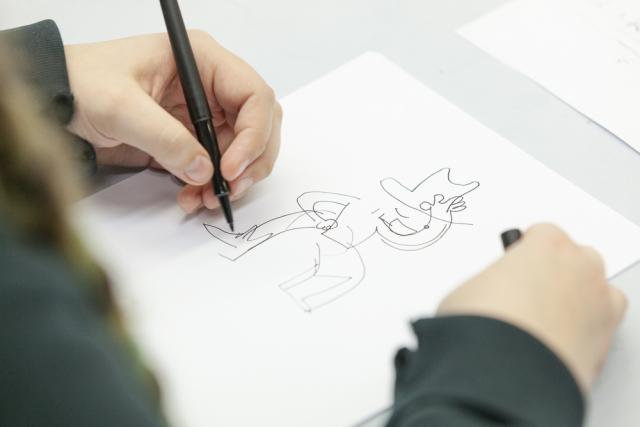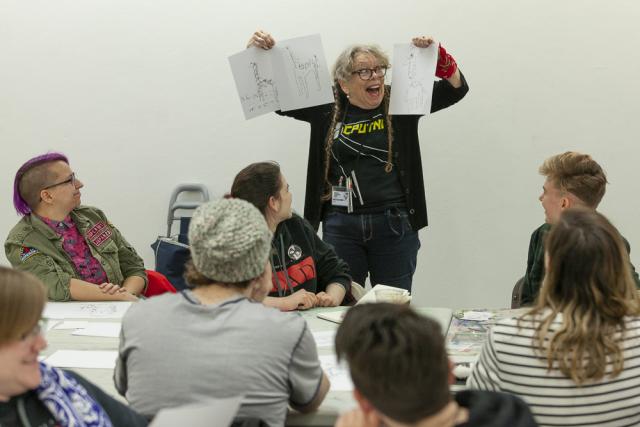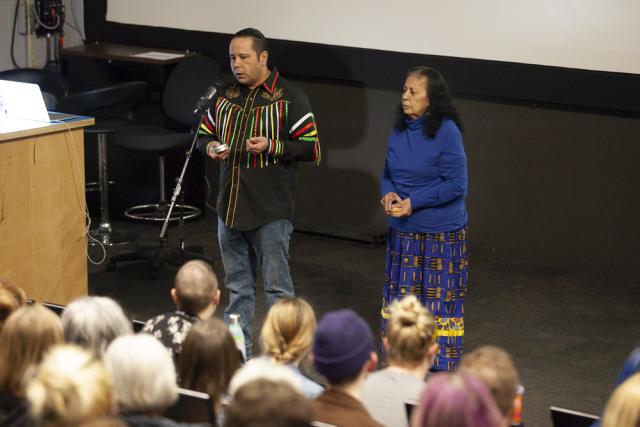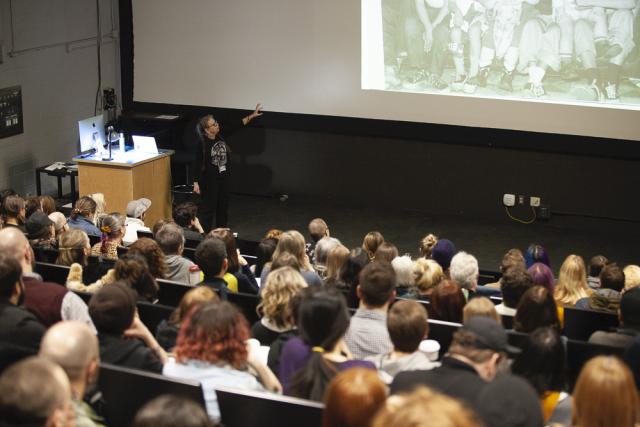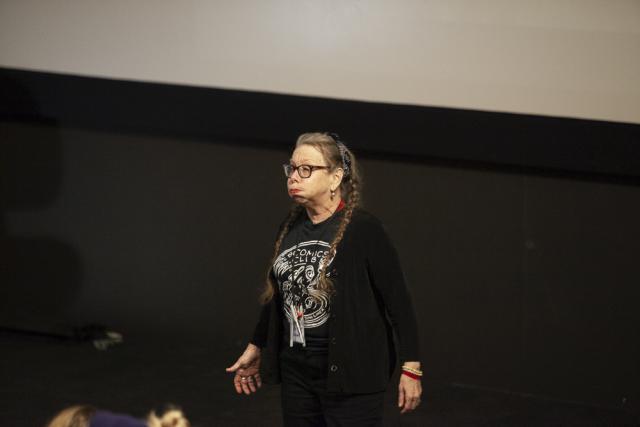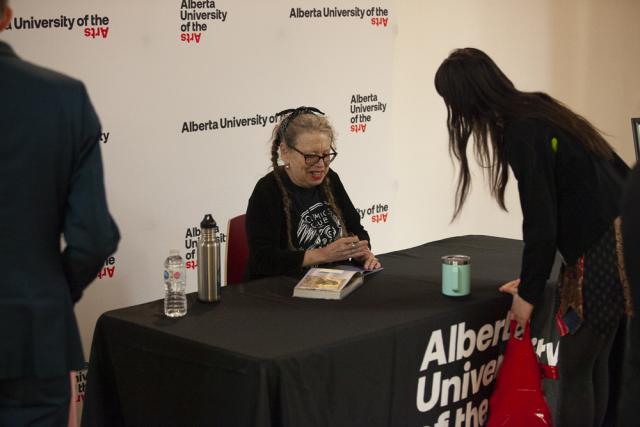Event
12 Feb 2020
Stanford Perrott Lecture Theatre (AUArts)
Premier Visiting Speaker Series: Lynda Barry
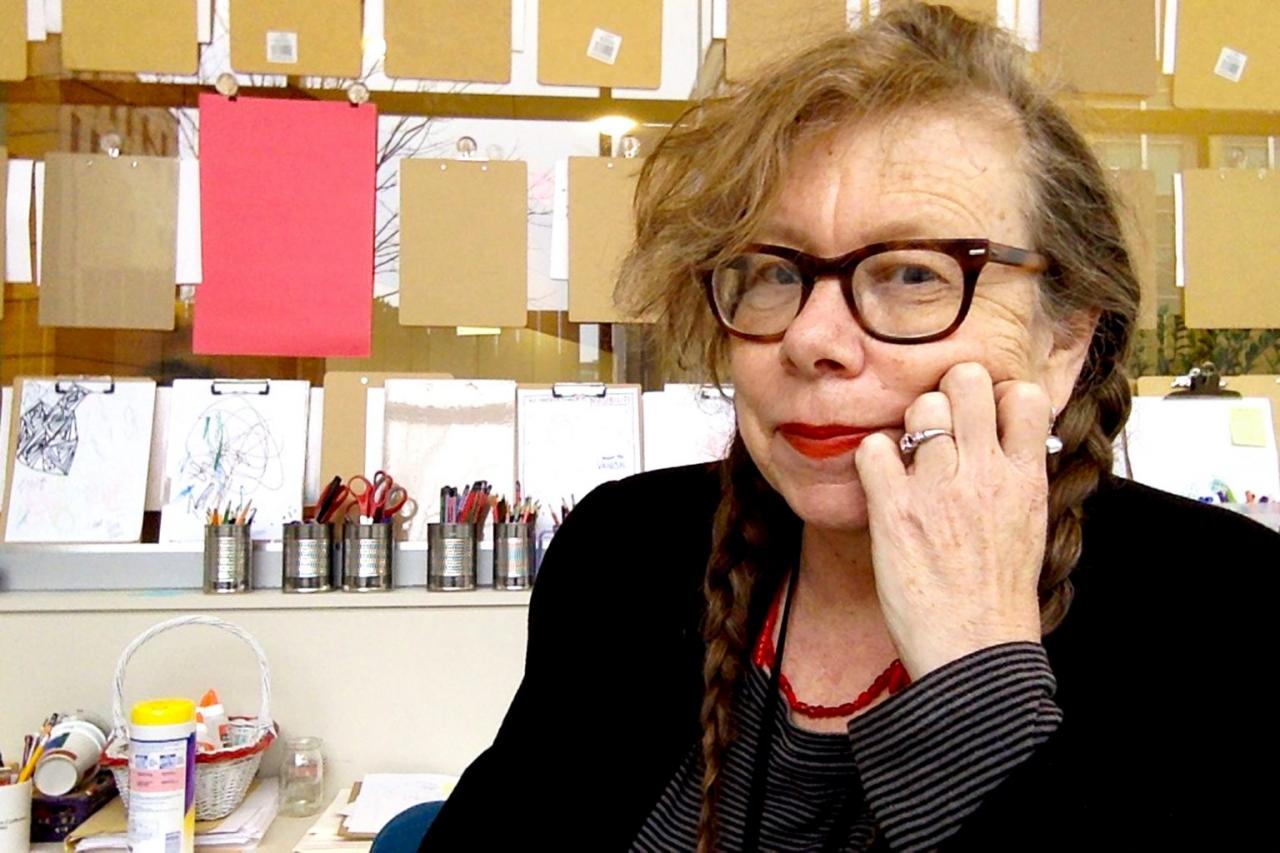
All over the world, people wish they could draw, sing, dance, sculpt, write, and act, long after they’ve given up on being able to do these things in ‘real’ life.
LYNDA BARRY: DRAWING WORDS AND SPEAKING PICTURES
Workshop for AUArts Students
10am – 1pm
LYNDA BARRY: DRAWN TOGETHER: RACE, CLASS AND THE UNIVERSAL LANGUAGE OF CREATIVITY
6pm
*books for sale from Shelf Life Books and book signing after the event
All over the world, people wish they could draw, sing, dance, sculpt, write, and act, long after they’ve given up on being able to do these things in ‘real’ life. It’s something we all have in common. Why does this longing persist? There is something common to everything we have come to call ‘the arts’. What is it? It’s something that feels alive to us in the same way our toys once felt alive. It’s something that has transformational properties, something we are capable of really loving, and it’s contained and transported from one person to the other by something that is not alive- a book, a song, a painting, a story, a dance—anything we call an ‘art form’. It has been around for human beings for as long as we have had hands and I believe it is the language that language itself is based on. I see creativity as a vital, fundamental force capable of conveying images across time and space with the power to address all human concerns. This talk is about our innate ability to use images to stand and understand each other, and to communicate our deepest experiences to one another across class and cultural boundaries when explanation, argumentative reasoning, logic and law have failed us.
Bio
Lynda Barry has worked as a painter, cartoonist, writer, illustrator, playwright, editor, commentator and teacher and found they are very much alike. The New York Times has described Barry as “among this country’s greatest conjoin-ers of words and images, known for plumbing all kinds of touchy subjects in cartoons, comic strips and novels, both graphic and illustrated.” She earned a degree from Evergreen State College during its early experimental period (1974-78), studying with painter and writing teacher Marilyn Frasca. Frasca’s questions about the nature of images and the role they play in day-to-day living have guided Barry’s work ever since.
In 1979 while pursuing a career as a painter, Barry began drawing a weekly comic strip incorporating stories considered to be incompatible with comics at the time. Stories, as Barry puts it, “that had a lot of trouble in them.” Widely credited with expanding the literary, thematic and emotional range of American comics, Barry’s seminal comic strip, Ernie Pook’s Comeek, ran in alternative newspapers across North America for thirty years.
Barry has authored 21 books, worked as a commentator for NPR, and had a regular monthly feature in Esquire, Mother Jones Magazine, Mademoiselle, and Salon. She created an album-length spoken word collection of stories called The Lynda Barry Experience, and was a frequent guest on the Late Show with David Letterman. She adapted her first novel, The Good Times are Killing Me, into a long running off-Broadway play, since published by Samuel French and performed throughout North America. Her book One! Hundred! Demons! was chosen as the Freshman all-read title at Stanford University. Her novel Cruddy was called “a work of terrible beauty” by the New York Times, and has been translated into French, Italian, German, Catalan and Hebrew. Her new book which is about the creative process with a how-to for comics titled Making Comics (Drawn & Quarterly, September 10, 2019).
Barry has received numerous awards and honors for her work, among them two William Eisner awards, the American Library Association’s Alex Award, the Wisconsin Library Asso-ciation’s RR Donnelly Award, the Washington State Governor’s Award, the Holtz Center for Science & Technology Outreach Fellowship, The Museum of Wisconsin Arts Lifetime Achievement Award, and the 2017 Milton Caniff Lifetime Achievement Award from the National Cartoonists Society. She also received an Honorary Doctor of Arts degree from Philadelphia University of Art in 2015, and was inducted into the Cartoonist’s Hall of Fame in 2016. In 2019 Lynda Barry was honored as a MacArthur Fellow (also known as the Genius Grant). The MacArthur Foundation website says: “Exuberant and generous as a teacher, Barry is removing the barriers that usually prevent people from writing and drawing and enabling artists and non-artists alike to take creative risks.”
